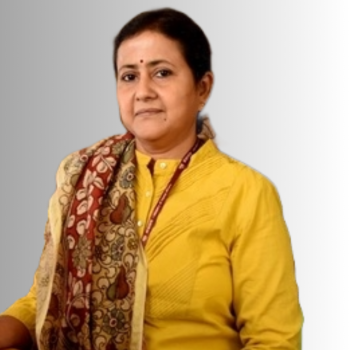Thank you so much. First of all I was very happy to see Venkata because I am in my Bangalore clothes now I can say I'm in more my tech clothes. We are certainly more. You know, we are underdressed compared to many of you. You know, I want to talk about the sovereign part and I think Sameer requested me to cover that as briefly as possible. You know, I want to tell you about in a way about not his current book but his future book. I don't know what he'll call it but let's assume for a moment he calls it Modinomics 3.0. What would that be about? I think it will be a significant departure from what is happening today. We are in the midst of a non linear change. And things are as a country will have to change very significantly. And if they don't, we'll be relegated to the sidelines in geopolitics. We won't be able to grow as an economy. So what are these changes that are upon us? And I wanted to share that with you now. Indication. And I'll talk about 10 new buzzwords that you can keep in mind. And then a few years from now you can tell me whether these 10 buzzwords which are not important today become important in the future. And if they do then you can remember me. Otherwise you can forget me as we go forward. So the first is that there is going to be less emphasis on the size of the economy. We will have to talk about structure of the Economy. Why is this important? I'll take you back to 2008. You know, G20 was created in the aftermath of the big recession that took place, the Great Recession. And there was one person who was involved in selecting the countries for G20. His name is Larry Summers. He. He describes this in his book and in many talks. He's down to the last country and last slot and two countries. And he asks himself, which one can I keep? So he frames the question and says, which of these two countries supply technology that the rest of the world cares for? So he asks about the first country. He says, big economy, but gosh, all that they give to the rest of the world is olive oil. Doesn't matter. Second country, he says, hey, nuclear submarines, commercial planes, nuclear plants, and so on and so forth. And these two countries are Spain and France. They're roughly the same size in economic power, but one is in G20, the other is not. And today, if I ask you a question, who will Trump treat better, Canada or Korea? What do you think? How many of you think it is Canada or how many of you think it's Korea? It's Korea. Because in his mind, what does Canada offer? Lumber, labor for auto parts. He doesn't need any of that. What does Korea offer? Technology. So we as a country will be treated based on our ability to produce technology that the rest of the world needs. If they already have it, they don't care for it, but distinctive technology that the rest of the world needs. So I hope as technologists, two technologists on this stage, you will forgive us for our dress. You know, I think we need that to make the new India happen. Second, is that why is this important? Because we are about to hit a roadblock. And I know this is a very unpopular thing to say in Delhi. Delhi likes positive messages and this is not a positive message. Back 25 years ago, there was this concept that was introduced by Indamit Singh Gill, who is currently the chief economist of World bank, called the Middle Income Trap. And you can actually see this playing out with Thailand as we speak. And you know, how many of you been to Vietnam for a holiday? See, I see some hands going up. Vietnam is gaining market share for everything because people say, why not get it done in Vietnam where the PPP per capita income is 11,000 versus Thailand, where PPP per capita income is 18,000. If I am going to get the same results, why not go to a cheaper place, right? So we know this is a phenomena that has taken place in Latin America for what I call as LATAM8, 25 years ago and none of those eight countries were able to break through the middle income trap. India is going to hit this middle income trap in five to seven years because this used to happen at roughly about $10,000 per capita. Not GP GDP and PPP but nominal per capita per capita. But now is going to happen much sooner because of robotics and AI. AI makes it, you know, you hit the gap much sooner. Now we this is related to the first point because to get to that point, to middle income trap, you should be the job. You should be the job shop of the world. You say, hey, don't manufacture auto parts in your own country. I'll do them for you better, right? And I'll do, I am a bpo. I'll give you labor arbitrage when it comes to IT services. You are essentially knocker of the world. And what Trump and others have done has said, if you are a knocker, you can't sit on the same table as me, right? This is what we told Pakistan since 2014. We never let them sit on our table. This is what China is doing to us now because we are not in the same league. We don't have a path to be able to cross the job shop mindset that we have. And as we look back, one of the biggest handicaps that we have in our country is that we started thinking that if we are the job shop of the world, if we are the back office of the world, somehow we will become a prosperous country. Many of us knew that is never going to be the case. But many of you thought that would be the case. Unfortunately, this was the prevailing wisdom in Delhi and continues to be the prevailing wisdom in Delhi. So we'll have to give this up as we go forward. We will have to find a way to overcome the middle income trap. Otherwise we will not be a viable economy as we go forward. So this means that we have to focus on things that people want from us. Not job shop products, not services. And the products ecosystem is a very, very different ecosystem than anything else. Let me ask you a question. How many of you know about Foxconn, right? How many of you know about TSMC? 1 is roughly 12 times bigger than the other by revenue. Which one is big by revenue? Yes. Foxconn. The other is bigger by profits. Which one is bigger by profits? TSMC by market cap. Also, who do you think the west is? Which company motivates the west to say we will save you Taiwan from becoming part of China? Foxconn. No, they don't care A shit about Foxconn. It's about tsmc. Right now we know how to build Foxconn type companies in India. We can build hospitals, Indigo Airlines, JIO and Airtel as mobile operators, good banks. These are all services players. And I'm glad we are able to do that because that's one place where we can employ people. There's no harm about this. We should not be ashamed of being able to do that. But being able to do that doesn't account for very much in modern economy. What accounts for is our ability to build viable product companies. And building viable product companies and the ecosystem that supports it is fundamentally different from building viable services companies. And this is something that we will have to internalize here again in the policy making capital of the country. We will have to internalize this change in a very, very big way. Now, is this possible? Of course it is possible. You know, today. Let me ask you another trick question. We are 3% of global trade. We are 7 to 8% of global economy. On nominal basis, we are 17 to 18% of global population. What is our proportion of global digital transactions? Are they more than 17% or less than 17%? How many of you think it's more than 17%? Alright, so many people believe so. Is it 34% or is it 51%? 51%. Why is this the case? Why does an economy contribute to more than half of the global digital transactions of the world despite being only 17% of the population, 7% of the economy and 3% of global trade? Because the architecture of our digital system is completely different. It's called India Stack. And what it does is that it creates building blocks for flow of people, flow of money and flow of information. A reference to DPDP ACT was made which is part of flow of information. But these are all techno legal implementations. DPDP ACT is important and don't misunderstand me, but more important is the tech counterpart of it, which most of you may not even have heard, called depa. Data Empowerment and Protection Architecture. In India, the magic happens when DEPA and DPDP work together. It's called techno legal regulation, right? And so. So? So the fact of the matter is that the ecosystem, in the battle of ecosystems that we are, we are engaged in when we want to build product companies. If you want a successful quantum company out of India, which is going to be relevant in the world, then we have to create an ecosystem. The battle is not of volume one company versus the other. It is a battle of an ecosystem versus the other. How many of you have an iPhone here and I can bet all of you at one day had a Nokia phone. And Nokia was defeated not because it was a poorer phone, it was defeated because the ecosystem of iPhone was superior to the ecosystem of Nokia. And so we have to learn how to build something called ecosystems. They are called Triple Helix ecosystems. Because in this Triple Helix ecosystem, the most important part of the helix is called research. Researchers like Venkata, who has how many citations, how many papers, how many patents, right? And it is the researchers coming together with market players and policymakers acting, acting in concert. We are starting to do this right on the back of some of the India stack success. What we have had success in telecom. We are beginning to get our playbook right in this fashion. But this is a very, very different, different animal from the animal that we've had so far. So one of the buzzwords, I don't know how many buzzwords I've already mentioned, probably four or five, but one of them is that you must have a triple Helix kind of a model battle of ecosystems is what we need. Can we do this? It'll be difficult. Very, very difficult. Can we do this without a humbling. That's the real challenge before us. Because if we are humbled like we were in 91, 92, of course we will be woken up into do this. There's little or no doubt, you know, we'll get a punch in the stomach and we'll be forced to adopt this. The question is, can we do this without a punch in our stomach? And that is hard. Why is it hard? Because I think it requires Delhi, Bangalore and Mumbai to come together. Bangalore for research, Delhi for policy making, and Mumbai for its market activity. We have to have all the three coming together today. You know, Bangalore is ready in my opinion. And I can say I can be critical of Delhi because I grew up in Delhi, my father was in the civil service. So I can afford to criticize Delhi because it's my old city, not my new city. But I think Bangalore is ready. Is Delhi ready? No, not at all. Is Mumbai ready? What do you think? How many of you think Mumbai is ready? Market is ready? Mr Sameer Kochhar No. Mr Sharad Sharma Last financial year for the first time, we had five companies which had over $10 billion of profits. Now this is significant. General Electric, whose engines, you know, populate the planes that are getting delayed in Europe because of the cyber security attack, had only $7.8 billion profits. So $10 billion profit is no mean achievement. So this is adani Ambani Tatas, ICICF bank, not ICIC, HDFC bank and SBI. Two banks, three companies, their combined spend on R&D, 0.1%. And you can humor me. You can go to Fortune 500, organize the list by profitability, look at only companies above $10 billion profit and then remove these five and then reorder it by spend on RD. Remove these five companies. The next company that you will see has an R and D investment of 2.1%. There's not even average. This is the next number. So if you have to be viable, our big players have to learn to not double their investment in R and D. Increase their investment by 21 times. It requires a mindset shift which is as big as the mindset shift that you need here in Delhi. Right. So will that happen without a sock in the stomach? If there's sock in the stomach, I can assure you this will happen. But will this happen without shock in the stomach? That depends on you. That depends on these conversations that you are having. Because if you can't galvanize this kind of a change because of these conversations, what's the point of having these conversations? Right. So that's the other stuff that you need. Then of course, you know, we are living this as we speak. That even if we get our act together, in fact everything that we have done, whether it's space, it is nuclear, it's the green revolution. More recently is India Stack. What's happened on the telecom side, even the Metro rail. All of these have been done by technocrats, not bureaucrats. How many of you in the room who are bureaucrats? You have to learn to work under technocrats. Because all these changes are moonshot changes. There is nowhere in the world a moonshot. A Manhattan Project happens inside bureaucracy.









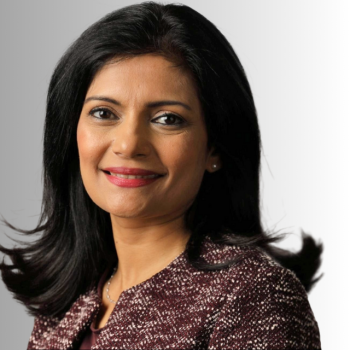




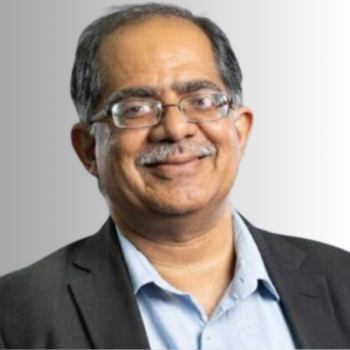

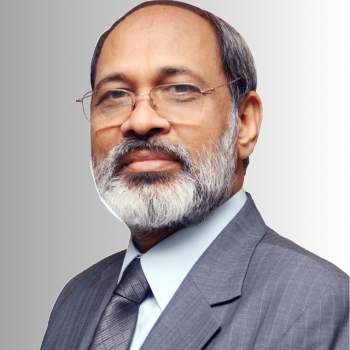

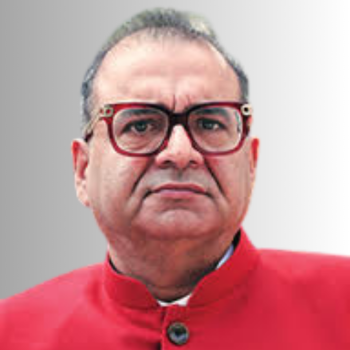
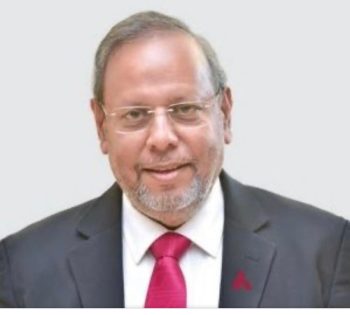
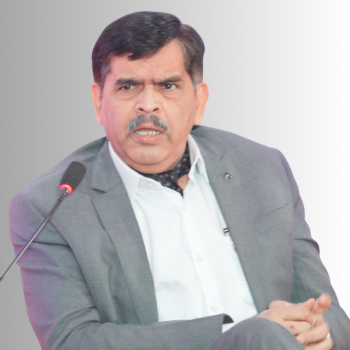 Dr Ashwani Mahajan, National Co-Convener, Swadeshi Jagaran Manch
Dr Ashwani Mahajan, National Co-Convener, Swadeshi Jagaran Manch